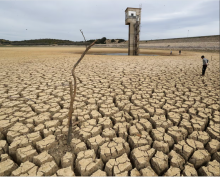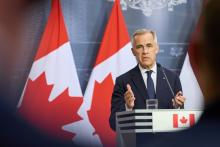The final months of 2025 were not kind to those concerned about the fate of our planet.
Rollbacks of hard-won climate policies and plans swept across the country like the seasonal flu. Vancouver city council passed an aggressively anti-climate budget despite hundreds of people showing up to speak to council in opposition.





![Mark vs Marc [VIDEO]](https://ecosocialistsvancouver.org/sites/default/files/styles/medium/public/article-image/screenshot_2026-01-31_151926_0.png?itok=KJ4cZDx_)




